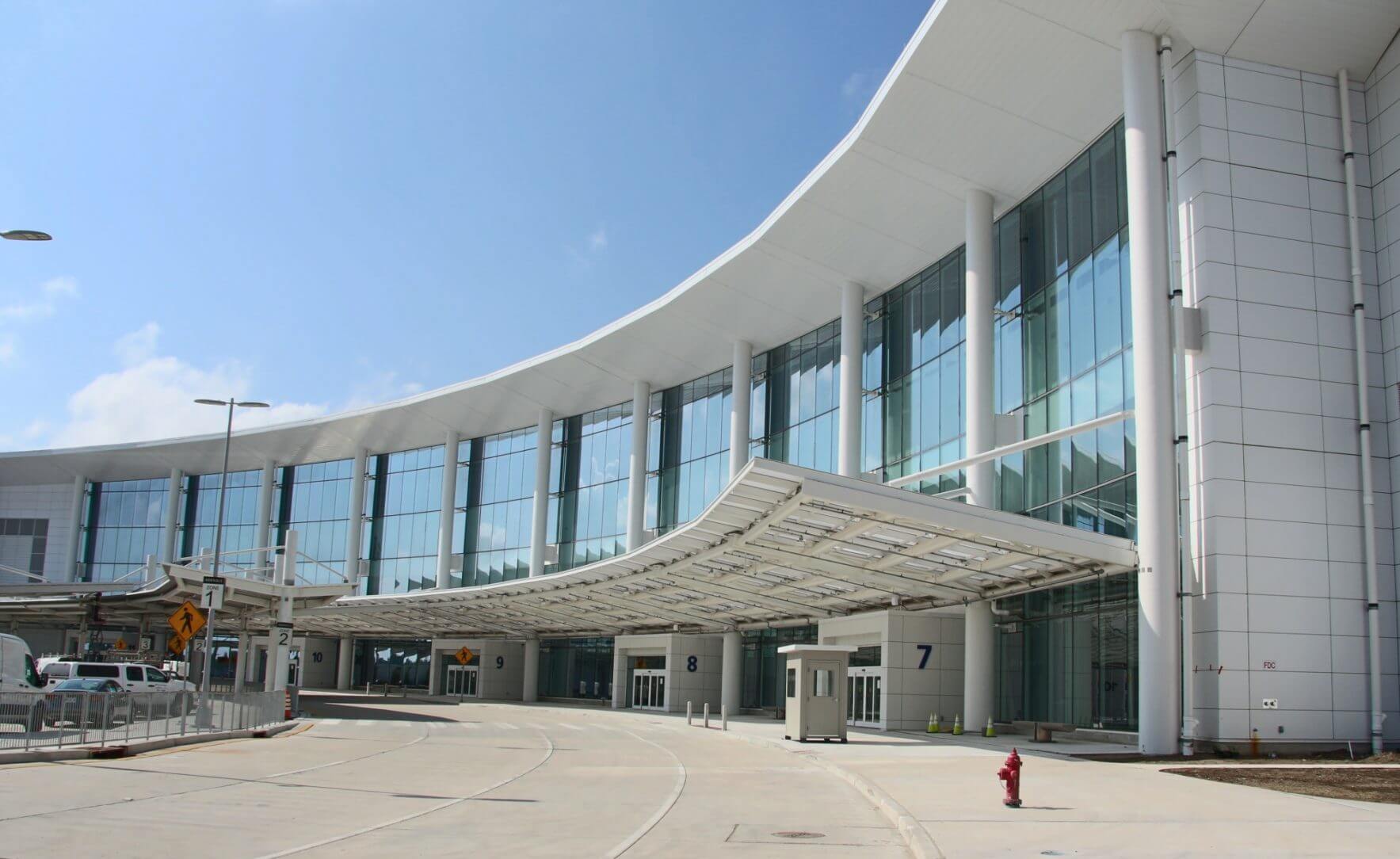KENNER, LA UNITED STATES 2019
AZZ Galvanizing - Morgan City & Baton Rouge
The Airport Council International, a global industry trade group, estimates US airports will need $128 billion in upgrades by 2023. No doubt the New Orleans International Airport will showcase the use of HDG duplex coatings and will have a great impact on the transportation market.
The new Louis Armstrong International Airport presents an innovative and functional approach to air travel that reflects the vibrant culture of New Orleans while keeping in mind the traveling public is less tolerable than ever of any delay that keeps them from their destinations. Airports especially are held to the highest standards of promptness ensuring people and freight flow smoothly. Corrosion protection offered by hot-dip galvanizing (HDG) plays a critical role in facilitating the New Orleans International Airport to operate efficiently for Crescent City travelers.
The buildings form evokes the geography of the Delta region and the soft curves of the Mississippi River. Symmetrical in plan, the building forms a gentle arc on three sides using arches and columns and glass facades to allow views of the airfield and to compliment the local environment. The design freedom of steel enabled specifiers to bring their idea of the river crest to reality and using hot-dip galvanizing and paint in a duplex system will protect their design for generations.
The two state-of-the-art terminals feature 45 food, beverage and retail vendors as well as more than 100 ticket counters. The airport serves more than five million passengers a year through its 35 gates using HDG stairs and handrails to access lower levels. Visitors and passengers arriving at the airport will be welcomed by the aesthetically pleasing white canopies, supported by duplex coated tubular frames. The traffic is directed by galvanized bollards and handrails, eliminating congestion for passenger pick up or drop off. The consolidated security checkpoint funnels passengers into one football-sized area making operation more streamlined and efficient.
The designers chose hot-dip galvanizing because of its sustainability and ability to meet the requirement of a 50-year life with a low maintenance cost. Maintenance activity on the tarmac could cause unwanted delays or security concerns that interfere with airport operations. The opportunity for corrosion is great considering the humid environment of the Mississippi River and the harshness of everyday airport traffic.
The sustainable design using hot-dip galvanized steel addresses the economic as well as cultural factors that will make the airport project successful well into the future. The project engineer, who is a LEED® professional DBE, remarked his previous galvanizing experiences have always been more than acceptable and how easy and convenient ASTM A123 was to specify. He also noted the initial cost of hot-dip galvanizing was more economical than the high-performance coatings available to the steel industry today. Hot-dip galvanizing provided the necessary protection for the abrasiveness of the daya-to-day airport operations and the superior life-cycle cost made HDG the right coating, at the right time for the right environment.
This project was powered by a CIC Pittsburgh Galvanizing furnace.
